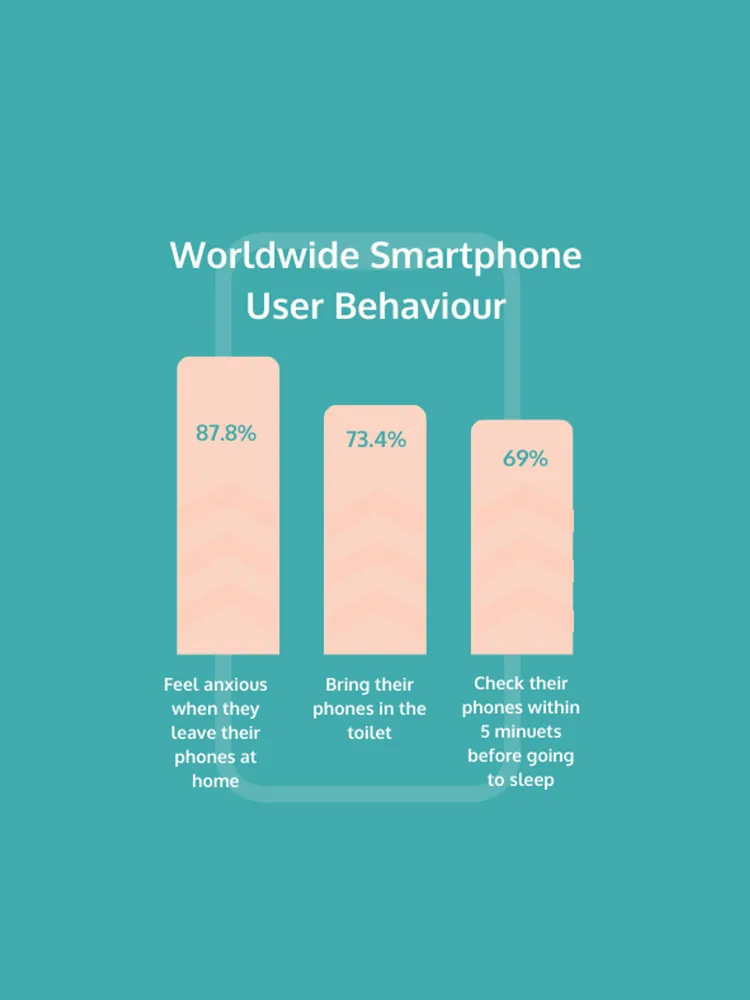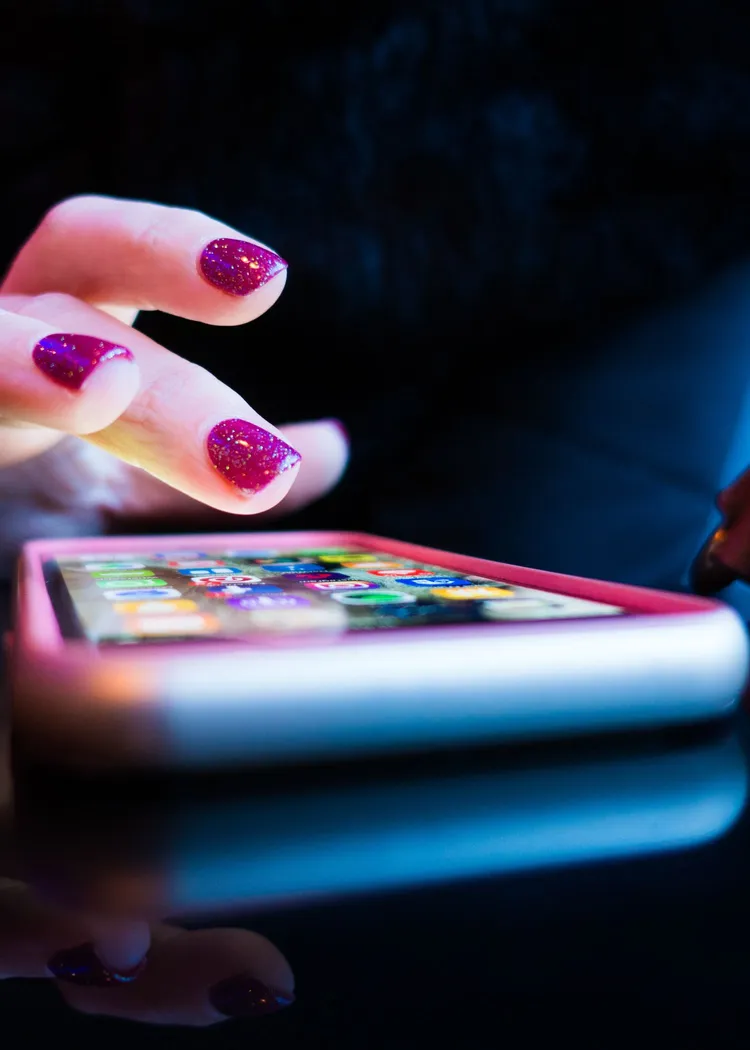A smartphone addiction is a behavioural addiction which is often referred to as ‘nomophobia’.
Nomophobia is a fear of not being with a mobile phone or device. Mobile phone addiction is an obsession with your smartphone which may interfere with your day-to-day life. It starts to effect relationships at work, school or at home. It comes before other important things in your life.
There's been a 500% increase in searches for help and information related to phone addiction in the UK over the last few years
Lester Morse, Director of Rehabs UK said:
"With all addiction withdrawals you can expect some emotional discomfort, for instance irritability and discontentment with everyday life, you may become hypersensitive around other people and situations. Your moods may swing from frustration to boredom, you may feel uninspired and a bit lost with what to do. Be careful that your desire to escape or be distracted doesn’t find another unhealthy outlet. The good news is that the discomfort will be a temporary state once you get back to more positive and worthwhile pursuits. If you find your emotional issues increase and do not subside after a few days you may need to seek professional support."
For those who feel their smartphone usage has become an addiction there are a variety of treatments and talking therapies that can help significantly.
If you are concerned about phone addiction and would like to discuss what treatment pathways are available contact our Treatment Advisors for a free assessment.

When looking at mobile phone addiction it might be difficult to realise when your mobile usage is too much. The designers and engineers who build mobile devices and programmes often have the intention to create them to be, in a way, addictive. The main aim is to get people to buy their product and continue to use it – making it hard to put the device down.
By using colour, sounds and vibrations it is purposely targeting the user to keep engaged. According to former Google design ethicist Tristan Harris, the common feature used in some social media sites etc, ‘pull to refresh’ were inspired by casino gambling games such as slot machines. With this in mind it is important to understand that these devices are designed to be engaging and addictive.
It is crucial to know when enough is enough and put the mobile phone away. But with society uses mobile phones more than ever it may be difficult.
The mobility of a mobile phone means that it is rarely ever more than five feet away from us at all times.
Similar to the use of drugs and alcohol, they can trigger the release of the brain chemical dopamine and alter your mood in a pleasurable way. Again, similar to other drugs you can build up a tolerance, which means it will take longer and longer for the individual to achieve pleasure from their screen time. Smartphones and social media have also been connected to increased accessibility to drugs due to the ease of connection and anonymity.
Mobile phone addiction can be a result of other underlying problems such as loneliness, anxiety, depression or stress. Mobile phone usage can also be used as a ‘security blanket’ from these same issues.
Staring at your phone will deny you the face-to-face interactions that can help to meaningfully connect you to others, alleviate anxiety, and boost your mood. It is actually making your anxiety worse by doing this.










